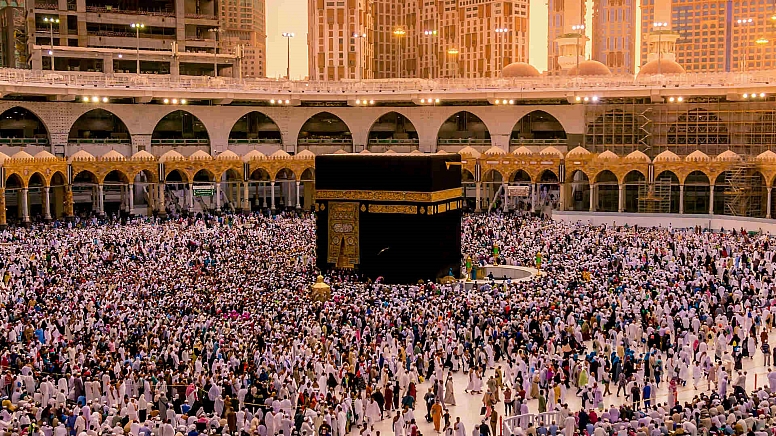
Why is Ramadan the Preferred Time for the Umrah Pilgrimage?
Ramadan holds a special place in the hearts of Muslims worldwide, representing a sacred period of fasting and spiritual devotion. This month is not only about abstaining from food and drink from dawn to sunset but also involves significant religious activities, such as Umrah, the lesser pilgrimage. Performing Umrah during Ramadan is highly recommended for its enhanced spiritual rewards.
Spiritual Atmosphere
- The Sacred Month of Ramadan: Ramadan is a deeply significant time in Islamic culture, characterized by fasting, prayer, and increased devotion, which foster self-discipline and community cooperation among Muslims. The entire month is marked by these practices.
- Performing Umrah: Umrah, a pilgrimage to Mecca that can be performed at any time, is particularly encouraged during Ramadan. Undertaking Umrah in this holy month is believed to bring greater spiritual rewards.
- Spiritual Richness: Allah rewards the good deeds of Muslims manyfold during Ramadan, including performing Umrah. Knowing this enhances the spiritual atmosphere of the month.
- Prayers and Quran Recitation: Ramadan is marked by regular prayers (Salat) and the recitation of the Qur'an, the holy book of Islam. These activities contribute to a heightened spiritual environment.
- The Feeling of Unity: Engaging in worship, whether individually or in groups, strengthens the sense of unity among Muslims, who come together as one family during this sacred month.
Divine Blessings
- Abundance of Allah's Favours: Ramadan is a month of immense blessings and mercy. This motivates Muslims to seek Allah’s favour through their actions.
- Performing Umrah for Spiritual Benefits: Umrah during Ramadan is seen as a chance to seek forgiveness, attain spiritual purification, and ask for blessings for oneself and one’s family.
- Spiritual Cleansing: Pilgrimage to the Kaaba during Ramadan is believed to sanctify the pilgrim, making it an ideal time for repentance and renewing one’s faith.
Following the Prophet's Example
- Prophet Muhammad's Practice: The Prophet Muhammad (Sallallahu Alaihi Wasallam) encouraged performing Umrah during Ramadan and set an example by doing so himself.
- Emulating the Prophet: Muslims strive to follow the Prophet's (Sallallahu Alaihi Wasallam) traditions, including performing Umrah in Ramadan, as a sign of loyalty to his practices. So why not take a look at the Ramadan Umrah packages from any good travel agency and get your slot booked?
- Encouragement of Umrah: The Prophet (Sallallahu Alaihi Wasallam) inspired Muslims to perform Umrah in this religious month, and he personally led the physical act of performing Umrah.
Cleansing of Sins
- Islamic Belief in Forgiveness: Umrah is believed to erase past sins, a concept of particular significance during Ramadan, a time dedicated to spiritual elevation.
- Umrah in Ramadan as Purification: Performing Umrah in this holy month is viewed as an opportunity for a fresh spiritual start, with previous sins forgiven.
- New Beginning: The act of seeking forgiveness and self-improvement aligns with the activities of Ramadan, emphasizing repentance and renewal. Everyone who sins, either knowingly or unknowingly, deserves the opportunity for forgiveness by performing Umrah in Ramadan with sincere devotion.
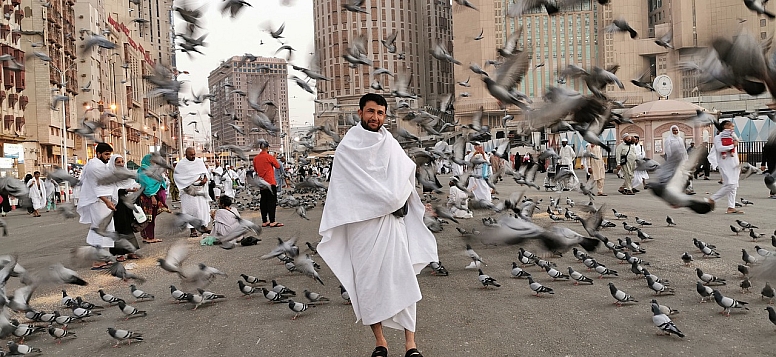
Unity and Brotherhood
- Undertaking Umrah During Ramadan: The pilgrimage during Ramadan draws a diverse crowd of Muslims from around the world, fostering a sense of unity and brotherhood.
- Sense of Unity: Shared worship and pilgrimage experiences during Ramadan transcend nationality and ethnicity, emphasizing the collective faith and devotion of Muslims.
- Spiritual Significance: Praying in the holy lands of Islam, especially in the month of Ramadan, also strengthens the ties of togetherness among the followers of the Islamic world.
The Night of Power (Laylat al-Qadr)
- Significance of Laylat al-Qadr: Laylat al-Qadr, or the Night of Power, marks the initial revelations of the Qur'an to the Prophet Muhammad (Sallallahu Alaihi Wasallam). It occurs during the last ten days of Ramadan.
- Timing During Ramadan: This night is a time of great spiritual reward, and many Muslims aim to perform Umrah during this period to maximize their spiritual gains.
Enhanced Spiritual Growth
- Fasting and Extra Prayers: Fasting (Sawm) and special prayers like Taraweeh during Ramadan increase spiritual awareness and bring Muslims closer to Allah.
- Spiritual Training: These practices enhance spirituality, making one more receptive to the religious experience of performing Umrah.
- Umrah and Spiritual Elevation: Performing Umrah during Ramadan in a heightened state of spirituality is deeply fulfilling and intensifies one’s relationship with Allah.
Small Groups of People and Good Temperatures
- Less Congestion During Ramadan: Although Umrah during Ramadan can be busy, it is less congested compared to Hajj. The last ten nights of Ramadan are particularly significant and busy.
- More Comfortable Weather: While temperatures in Saudi Arabia can vary, Ramadan sometimes falls during cooler periods, making the pilgrimage more comfortable. Even according to the weather reports and other aspects, you can also book Umrah packages 2025 in advance in Ramadan to get more blessings this Holy month.
- Spiritual Rewards Anytime: Umrah can be performed year-round, but the spiritual benefits of doing it during Ramadan are especially profound.
Performing Umrah during Ramadan is highly favoured for its spiritual rewards, historical significance, and the sense of unity it fosters among Muslims. It is a time when Muslims consciously seek to draw closer to Allah and demonstrate solidarity with the global Muslim community, confirming their belonging to one ummah.
FAQs
1. What is Ramadan?
Ramadan is a holy month in Islam, during which Muslims fast from dawn to sunset, engage in increased prayer, and devote themselves to spiritual reflection and community.
2. What is Umrah?
Umrah is a pilgrimage to Mecca that can be performed at any time of the year, unlike Hajj, which has specific dates. Umrah involves performing a set of religious rituals.
3. Why is performing Umrah during Ramadan special?
Performing Umrah during Ramadan is highly recommended as it is believed to bring greater spiritual rewards and blessings. The act of worship during this holy month is considered especially meritorious.
4. What are the main activities during Ramadan?
During Ramadan, Muslims fast from dawn to sunset, perform extra prayers (such as Taraweeh), read the Qur'an, and engage in acts of charity and reflection.
5. What is Laylat al-Qadr?
Laylat al-Qadr, or the Night of Power, is one of the last ten nights of Ramadan. It marks the night when the Qur'an was first revealed to the Prophet Muhammad (Sallallahu Alaihi Wasallam) and is considered the holiest night of the year.
6. Can sinners seek forgiveness by performing Umrah during Ramadan?
Yes, sinners can seek forgiveness by performing Umrah during Ramadan. The act of sincere worship and repentance during this holy month offers an opportunity for spiritual renewal and forgiveness.
7. What is the significance of increased prayers during Ramadan?
Increased prayers during Ramadan, such as Taraweeh, help Muslims strengthen their faith, seek closeness to Allah, and gain spiritual benefits.
8. How does Ramadan foster a sense of unity among Muslims?
Ramadan fosters a sense of unity as Muslims worldwide engage in similar practices of fasting, prayer, and worship, which strengthens their bond as one community or ummah.
9. How does performing Umrah during Ramadan compare to Hajj?
While Hajj is an obligatory pilgrimage with specific dates and involves millions of pilgrims, Umrah can be performed at any time. Performing Umrah during Ramadan, however, holds special significance and spiritual rewards.
10. What preparations are needed for performing Umrah during Ramadan?
To perform Umrah during Ramadan, Muslims should book their travel and accommodation in advance, ensure they are in good health, and prepare spiritually by understanding the rituals and significance of the pilgrimage.

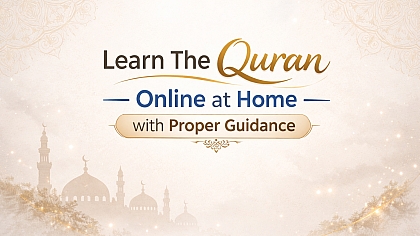

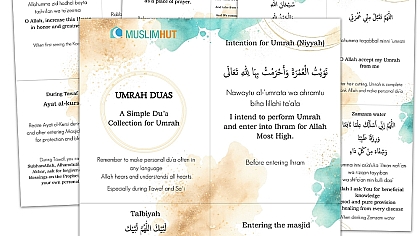
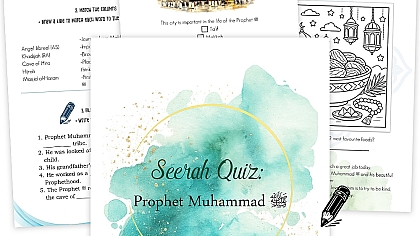


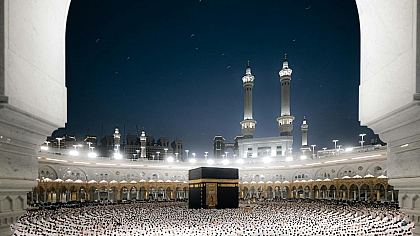
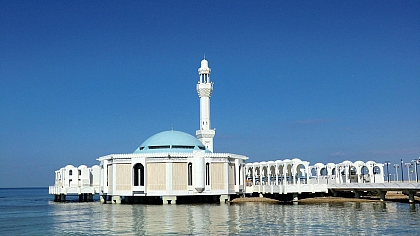
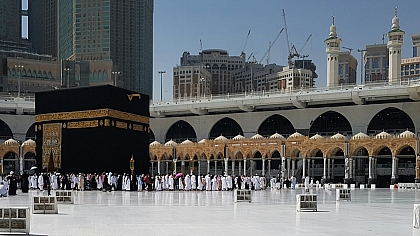
COMMENTS
Great Information love the content.